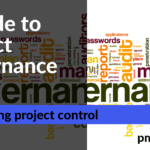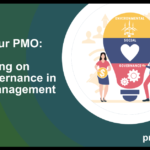A typical project or programme will contain many tasks and activities. Some will be small some will be large. Some with short durations, some with long. There may be one person working on a task or it may be a team. Given all the dimensions it is important that there is an appropriate project governance structure for the exchange of information, resolution of risks / issues and for making decisions.
The governance structure will depend on the size and needs of each project. The following are the types of governance meetings that can be used.
Project Working Group (PWG)
A PWG as the name indicates is used to drive much of the day to day work. The meetings will be held fairly frequently. Normally weekly, for more fast paced projects it can be more often.
The forum is used to discuss the active work both completed and what still needs to be done. It can be used to set priorities.
The attendees will typically be those responsible for the completion of the tasks and the project manager. For larger projects or programmes it might be the workstream lead.
The PWG usually will not have formal minutes. However, actions and any risks / issues should be captured and tracked. It is also important to record decisions so that they can be recorded.
The PWG should have a clear understanding of their authority as the PWG may identify risks / issues which they are unable to resolve. These should be clearly captured so that they can be discussed with the project manager and, where required, escalated to the Project Steering Committee.
Project Steering Committee (PSC)
The PSC will be the next level of governance above the PWG. It will normally be chaired by the sponsor or more typically the project manager. The frequency will depend on the duration of the project. Shorter projects may have a PWG each fortnight, those with a longer duration will typically be monthly.
The forum is used to cover a number of governance items including:
Minutes – the PSC should have official minutes to record who attended, key discussions, decisions and capture actions. The first point on the agenda should be the official recording that the minutes from the previous meeting are agreed and accepted as final. This provides an official record of the previous PSC.
Actions – there should be a review of open actions for updates or closure. All actions closed since the last PSC should be recorded so that the members can review to ensure they are happy that the action has been closed.
Agenda – this will outline what will be covered by who in the meeting. It should also clearly indicate what decisions (if any) are being sort.
Status – this will take the form on an executive summary and an overall rating using the recognised process i.e. Green. It is important that all members agree the status as this will be the recorded official position at that point in time.
Plan – some PSC’s may wish to review the high level plan to check progress. This is sometimes an easier way to view progress.
Deliverables – it is good practice for the PSC to review important project deliverables that have been completed in order to close milestones. While the deliverable may have been signed-off outside the PSC, presenting for formal review and closure by the PSC helps ensure that the deliverable is fit for purpose and meets the requirements. It also allows the closure to be recorded in the minutes.
Risks / issues – the PSC should review all of the important risks and issues at a minimum. There may be risks / issues that require PSC intervention / support. For example where a priority call is required for assigning resources between different workstreams of the project. Tip: it is important that the risk / issue clearly states what action is being requested.
Resources – in the mobilisation phase of a project, it is crucial that the project resource plan is tracked. This allows the PSC to challenge where resources are not being added quickly enough and provide support where approvals are not being progressed.
Budget – it is the duty of the PSC to review budget to ensure that the project is on track. The budget update should clearly show progress against budget so that the members can see if there is over / under spend.
Change Control – any changes to scope, schedule budget or benefits must be presented to the PSC for formal review and sign-off (or rejection). This will allow the formal change to be recorded and the project baseline to be updated.
Spotlights (optional) – during the life of a project, the PSC may wish to focus on particular aspects of the project i.e. approach, particular workstreams, areas of concern, etc. The information can be presented as a spotlight as an update or as an item requiring a decision.
The PSC should have a clear terms of reference that sets the remit and authority of the meeting. Most importantly it should clearly show what the PSC can and cannot decide. It must also show the clear escalation route for items that are above the authority of the PSC.
Summary
Every organisation will have their own naming convention for meetings and there may be meetings in-between the PWG and PSC. There may even by multiple steering committees i.e. project SteerCo feeding into programme SteerCo feeding into portfolio SteerCo. However, the principles and responsibilities will be similar albeit with increased authority.
Establishing and embedding the Project Governance Meetings is critical. Each meeting should have a clear purpose, attendees and terms of reference. This will help ensure that decisions and escalations can be quickly agreed to keep the project on track.







